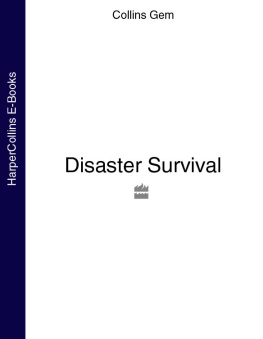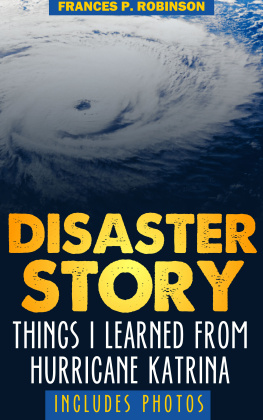Juliana Svistova - Production of Disaster and Recovery in Post-Earthquake Haiti: Disaster Industrial Complex
Here you can read online Juliana Svistova - Production of Disaster and Recovery in Post-Earthquake Haiti: Disaster Industrial Complex full text of the book (entire story) in english for free. Download pdf and epub, get meaning, cover and reviews about this ebook. year: 2018, publisher: Routledge, genre: Politics. Description of the work, (preface) as well as reviews are available. Best literature library LitArk.com created for fans of good reading and offers a wide selection of genres:
Romance novel
Science fiction
Adventure
Detective
Science
History
Home and family
Prose
Art
Politics
Computer
Non-fiction
Religion
Business
Children
Humor
Choose a favorite category and find really read worthwhile books. Enjoy immersion in the world of imagination, feel the emotions of the characters or learn something new for yourself, make an fascinating discovery.

- Book:Production of Disaster and Recovery in Post-Earthquake Haiti: Disaster Industrial Complex
- Author:
- Publisher:Routledge
- Genre:
- Year:2018
- Rating:4 / 5
- Favourites:Add to favourites
- Your mark:
Production of Disaster and Recovery in Post-Earthquake Haiti: Disaster Industrial Complex: summary, description and annotation
We offer to read an annotation, description, summary or preface (depends on what the author of the book "Production of Disaster and Recovery in Post-Earthquake Haiti: Disaster Industrial Complex" wrote himself). If you haven't found the necessary information about the book — write in the comments, we will try to find it.
Natural disasters have long been seen as naturally generated events, but as scientific, technological, and social knowledge of disasters has become more sophisticated, the part that people and systems play in disaster events has become more apparent. Production of Disaster and Recovery in Post-Earthquake Haiti demonstrates how social processes impact disasters as they unfold, through the distribution of power and resources, the use of discourses and images of disaster, and the economic and social systems and relations which underlie affected communities. The authors show how these processes played out in post-earthquake Haiti to set in motion the mechanics of the disaster industrial complex to (re)produce disasters and recovery rather than bring sustainable change.
The book reveals that disaster and recovery rhetoric helped create fertile conditions for neoliberal disaster governance, militarized and digital humanitarianism, non-profiteering, and disaster opportunism to flourish while further disenfranchising marginalized populations. However, the Haiti earthquake, as is the case with all disaster sites, was ripe with mutual aid, community building, and collective action, all of which further local resilience. The authors seek to re-construct dominant discourses, policies, and practices to advance equitable, participatory partnerships with local community actors and propose a praxis for a peoples recovery as an action-oriented framework for resisting the transnational disaster industrial machinery. The authors argue for new synergies in policymaking and program development that can respond to emergencies and plan for true long-term, sustainable development after disasters that focuses as much on humans and the natural world as it does on economic progress.
Production of Disaster and Recovery in Post-Earthquake Haiti will be of great interest to students and scholars of disaster studies, humanitarian studies, development studies, Haitian studies, geography and environmental studies, as well as to non-governmental organizations, humanitarians, and policymakers.
Juliana Svistova: author's other books
Who wrote Production of Disaster and Recovery in Post-Earthquake Haiti: Disaster Industrial Complex? Find out the surname, the name of the author of the book and a list of all author's works by series.







